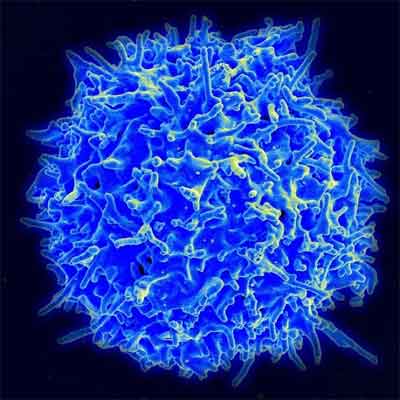- Home
- Editorial
- News
- Practice Guidelines
- Anesthesiology Guidelines
- Cancer Guidelines
- Cardiac Sciences Guidelines
- Critical Care Guidelines
- Dentistry Guidelines
- Dermatology Guidelines
- Diabetes and Endo Guidelines
- Diagnostics Guidelines
- ENT Guidelines
- Featured Practice Guidelines
- Gastroenterology Guidelines
- Geriatrics Guidelines
- Medicine Guidelines
- Nephrology Guidelines
- Neurosciences Guidelines
- Obs and Gynae Guidelines
- Ophthalmology Guidelines
- Orthopaedics Guidelines
- Paediatrics Guidelines
- Psychiatry Guidelines
- Pulmonology Guidelines
- Radiology Guidelines
- Surgery Guidelines
- Urology Guidelines
Soon, an accurate, cheap genetic test for anal cancer

Washington D.C.: A new genetic test could be an accurate and inexpensive way to find and treat those at highest risk of anal cancer - a disease with growing incidence in women, men who have sex with men (MSM) and people with HIV.
The early research by Queen Mary University of London (QMUL) found that the test could lead to a reduction in painful procedures and minimise the over-treatment of people at low risk.
Anal cancer is mostly caused by human papillomavirus (HPV) - the same virus that causes cervical cancer. Diagnosis presents many challenges. Full biopsies are painful, and taking a small sample of cells ('cytology') is problematic because lesions can be hidden and clinicians give varying interpretations of results.
High-resolution anoscopy, where the anal canal is examined with a high resolution magnifying instrument, is often used as the primary screening tool for high-risk populations but is uncomfortable for the patient, expensive, complex and generates subjective results.
Lead researcher Attila Lorincz said that the widespread over-treatment of anal precancerous lesions is necessary today because we don't know which ones will progress to cancer. "But this creates a large burden on anoscopy clinics in the UK and the procedures can be detrimental to people's quality of life. Many people are undergoing these procedures unnecessarily, so what we really need is precision medicine to identify those who do need treatment."
The research involved studying anal biopsy specimens from 148 patients in London, including 116 men (mostly MSM). The specimens were analysed to look for genetic markers that may be associated with the presence of anal cancer.
The team specifically looked at the patients' epigenetics and found that all of the anal cancers showed the presence of specific epigenetic methylation markers on the patients' EPB41L3 gene (a tumour suppressor gene) and also on certain regions of their viral HPV genome.
The results suggest that epigenetic testing may be an accurate and thorough method to indicate whether a patient's lesions are destined to progress to anal cancer. This could reduce the costs, pain and anxiety from other methods of diagnosis, and minimise over-treatment of low risk people.
Once developed, the test would involve taking a small sample of cells from the anal canal via a swab and then sending the sample off to a laboratory for epigenetic analysis.
While a test could be developed within five years, the researchers caution that the results first need to be confirmed in a much larger study across the UK, and repeated using swab samples rather than the biopsies which were used in the current study.

Disclaimer: This site is primarily intended for healthcare professionals. Any content/information on this website does not replace the advice of medical and/or health professionals and should not be construed as medical/diagnostic advice/endorsement or prescription. Use of this site is subject to our terms of use, privacy policy, advertisement policy. © 2020 Minerva Medical Treatment Pvt Ltd